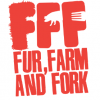A.2 Q: How do I determine if I am an importer of a food for the purposes of the FSVP regulation (FSVP importer)? A: You are the FSVP importer if you are the U.S. owner or consignee of an article of food that is being offered for import into the United States (21 CFR 1.500). If there is no U.S. owner or consignee of an article of food at the time of U.S. entry, the FSVP importer is the U.S. agent or representative of the foreign owner or consignee at the time of entry, as confirmed in a signed statement of consent to serve as the importer under the FSVP regulation
A.4 Q: What does “U.S. owner or consignee” mean? A: “U.S. owner or consignee” means the person in the United States who, at the time of entry of an article of food into the United States, either owns the food, has purchased the food, or has agreed in writing to purchase the food (21 CFR 1.500). There is a variety of commercial arrangements regarding the importation of food. In some cases, one or more persons may have purchased the food (i.e., obtained it through payment of money or equivalent) or agreed in writing to purchase the food but do not own it at the time of entry. In addition, there may be cases in which, although ownership of an imported food has not transferred from the foreign owner at the time of the food’s entry into the United States, there are one or more U.S. entities who have purchased the food or agreed in writing to purchase it. Contains Nonbinding Recommendations Draft - Not for Implementation 7 The FSVP importer must ensure that, for each line entry of food product offered for entry into the United States, the importer’s name, email address, and unique facility identifier recognized as acceptable by FDA are provided electronically when filing entry with U.S. Customs and Border Protection (CBP) (21 CFR 1.509(a)).
A.5 Q: What if multiple entities meet the definition of “importer” for a particular food? A: In some cases there might be multiple entities that meet the “importer” definition for the same line of an entry of food offered for import into the United States. For example, a U.S. company might purchase olive oil manufactured in Italy and, at the time of entry, have entered into an agreement to re-sell the olive oil to a U.S. retail store after the product has entered the United States. In this case, both the U.S. purchaser and the retail store might meet the definition of importer. Alternatively, a foreign grower of lettuce might arrange for the importation of the lettuce into the United States under written agreements to sell the lettuce to multiple, unaffiliated U.S. buyers once the lettuce has entered this country. When there are multiple entities that meet the “importer” definition, these entities will need to determine who will be responsible for meeting the FSVP requirements for the food (and, consequently, who should be identified as the importer of the food at entry). We expect that U.S owners and consignees will address the responsibility for FSVP compliance in their contractual agreements when they have a direct commercial relationship. If there is an agreement between or among multiple U.S. owners or consignees of a food regarding responsibility for FSVP compliance and identification of the importer at entry, the entity identified as the FSVP importer at entry would be the entity that we would ordinarily prioritize for possible review under our risk-based FSVP compliance assessment program. When there are multiple unaffiliated U.S. owners or consignees for the same line of an entry of a food, we anticipate that each such entity will develop an FSVP for the food and foreign supplier. However, if one of the entities were willing to serve as the FSVP importer for this food from this foreign supplier, this would be permissible under the regulation. Similarly, if someone (e.g., one of multiple U.S. owners or consignees of a food) fraudulently or unintentionally identified a U.S. owner or consignee of a food as the FSVP importer (contrary to a written agreement regarding responsibility for FSVP compliance), we would take this into account in any enforcement action we take with respect to this food. A.6 Q: What does it mean to have “agreed in writing to purchase” a food? A: A person has agreed in writing to purchase a food (for the purposes of the definition of “U.S. owner or consignee”) when he or she has entered into a written promise to purchase the food at a later date. Typically a buyer of a food issues a purchase order to a seller indicating the product to be purchased, the quantity, and the price. When the seller confirms acceptance of the purchase order in writing, there is a written agreement that the buyer will purchase the food. We regard agreements entered into electronically (e.g., through online submission and acceptance of a purchase order) as being “in writing.”
The use of written procedures is particularly important in light of the flexibility to rely on an entity other than you (such as an entity in the supply chain between you and the supplier) to ensure that you receive food from approved suppliers (see 21 CFR 1.506(a)(2)). Although such an entity can do this as a service to you, a written procedure is appropriate to ensure a robust and meaningful verification. If you purchase food from a broker or distributor, you must approve the suppliers of the foods you buy from the broker/distributor, but the broker/distributor could document that written procedures are being followed to ensure that the foods provided to you only come from suppliers you have approved. The broker/distributor would provide this documentation to you (e.g., in documents accompanying the shipment) for you to review and assess. Thus, if you rely on a broker/distributor to ensure that the foods provided to you only come from suppliers you have approved, you and the broker/distributor you buy from should agree on the written procedures for how the broker/distributor will document that foods are received only from suppliers approved by you. For example, the broker/distributor could have a checklist that the broker/distributor’s employee dates and initials after reviewing the invoice from the supplier, and send a copy of that dated checklist to you together with the invoice for the food. You could use an electronic system or specific supply-chain management software to document receipt of the food and review of the checklist from the broker/distributor at the time of receipt.
You can rely on other entities, such as distributors, brokers, aggregators, and harvesters, to determine, conduct, and document verification activities for the grower, harvester, and packer, provided that you review and assess the determinations and verification activity results (see 21 CFR 1.506(d)(3) and (e)(2) and Questions F.13 and F.26).
















